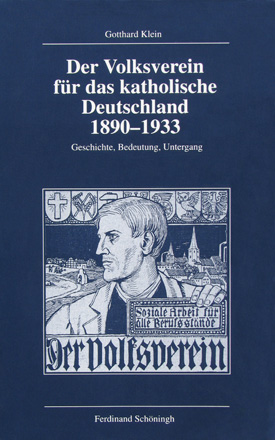Klein, Gotthard: Der Volksverein für das katholische Deutschland 1890–1933. Geschichte, Bedeutung, Untergang, Paderborn [u. a.] 1996

Founded by laypeople in 1890, the Volksverein für das katholische Deutschland (People’s Association for Catholic Germany) became (according to Rudolf Morsey) the »largest and most influential association« of German Catholics. In 1914, it boasted 800,000 members, with a marked concentration in the Rhenish-Westfalian industrial region. The association’s intensive efforts in the realm of education and schooling, based on traditional Catholic social teachings, played a crucial role in acclimatizing Catholics to the Wilhelmine Empire. The Volksverein’s impressive history of success was not continued in the Weimar Republic, however. Beginning in 1922, its membership steadily declined, reaching a low of 417,000 by the time of the organization's financial collapse in 1928.
The author reconstructs thoroughly, and with extensive reference to the source materials, the Volksverein’s history of success as well as its shrinking room for maneuver and the process of its decline. He offers a convincing answer to the question of what caused the association’s structural crisis and its downfall in Nazi Germany. Plentiful demographic data and statistical tables taken from the sources, as well as critically annotated reproductions of key documents, offer the reader an impressive array of additional useful information. Future historians of German Catholicism in the Weimar Republic and also the early Federal Republic will not be able to overlook this exemplary study.
To order our publications, please, contact your local bookshop or the publishing house Schöningh in Paderborn.
